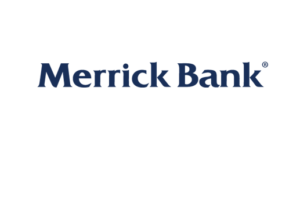4 Ways to Improve Your CIBIL Score to Become Eligible for a Personal Loan
A personal loan is considered a feasible option to handle planned and unplanned expenses without landing in a financial mess. But, the lenders carry out intensive research on the borrower’s profile to ensure their creditworthiness.
Although the loan amount, interest rate, and tenure depend upon several eligibility factors, healthy credit history is one of the critical parameters to demonstrate a borrower’s disciplined behaviour towards handling debts and repayment of the loan. A three-digit number assigned by RBI licensed agencies, the good CIBIL score helps evaluate the financial credibility and assess the candidate’s potential risk factor.
A summary of your credit history, a CIBIL score of 750 or more helps obtain the personal loan without any hassle. It provides an upper hand in negotiating with the lender for a low interest rate, high loan amount, and flexible repayment tenures. One could easily check their CIBIL score and credit reports directly from the agency website or online banking services.
One can achieve an excellent CIBIL score by paying their existing loan EMIs and credit card bills. In contrast, exceeding the credit utilization limit and applying for multiple loans could hurt your credit health.
Scroll down to know in detail about four ways for increasing the CIBIL score to be eligible for a personal loan.
Pay your credit card bills and loan EMIs
Due to the introduction of numerous instant loan apps and credit card companies, one is easily tempted to apply and avail the features offered by them. However, impulsive spending through credit cards could bury you in a pile of debts as you might be unable to pay the credit card bills in full on time.
Moreover, failure in depositing card bills and loan EMIs could have devastating effects on your CIBIL score. The credit provider could report this negative behaviour to the concerned agencies, which shall be observed in your credit health. Hence, one should pay the total outstanding balance instead of depositing the minimum due amount mentioned in the bill to avoid getting trapped in the debt cycle.
Also, one should set automatic reminders to pay the invoices within the due date to avoid late payment charges affecting your credit health. Similarly, delays in loan EMI payments also negatively impact your CIBIL score and could also lead financial institutions to liquidate your assets to repay the loan amount.
Monitor your credit utilization ratio carefully
Another critical factor in improving your credit health is by checking your credit utilization ratio (CUR) within 30% of the available credit limit on the card. While paying for shopping, dining, and entertainment through credit card does involve numerous cash-backs and discounts, it is unwise to use a credit card all the time as it would exceed the preferred credit utilization limit and leave a negative mark on your CIBIL score.
Carrying a higher card limit does not necessarily mean you have to use it for all transactions and indulge in needless expenditures. On the contrary, keeping an ideal CUR would help increase your credit health over time to obtain the Fullerton India instant personal loan online through a few clicks.
Check your credit report regularly
A credit report contains all the information about default or delayed payments made by an individual, which can help in improving the credit score. Hence, one should regularly evaluate the credit report to look for any discrepancies or errors that should be brought to the notice of financial institutions and reporting agencies for correction.
Such awareness and reporting of the disputes regarding the wrong information help in keeping the credit records updated and increase your CIBIL score over time. Moreover, even a spelling mistake in your name or identifying a missing transaction in the credit report has a significant impact on an individual’s credit score.
Avoid debt settlement at any cost
Lastly, in case you are unable to repay the loan or credit card bills and the lender/provider offers you a chance to exercise a debt settlement agreement, disagree on it.
While it may sound like a good idea to approach the bank and close the debt at a lower amount than the actual one, this reflects negatively on an individual’s credit score as it demonstrates your inability to handle debts and repayment activity. In addition, such debt settlements usually close the doors of obtaining an unsecured loan soon following the dip in your CIBIL score.
Pro tip:
While one should keep a mixed bag of secured and unsecured loans to maintain a healthy credit score, submitting multiple loan applications within a short span could lead to rejection from the lenders as it will display your desperation for acquiring credit. Subsequently, your credit score will come down due to such irresponsible behaviour. Thus, make sure to maintain a substantial gap between applying for loans and always check your CIBIL score beforehand to avoid any confusion at a later stage.



